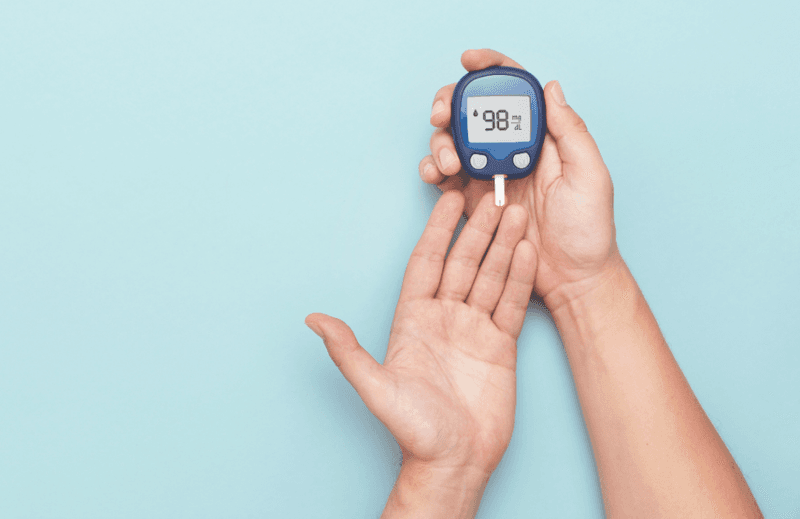14 Surprising Causes of Chronic Fatigue You Can Fix

Feeling tired all the time isn’t normal, yet millions struggle with persistent fatigue that doesn’t improve with rest. While serious medical conditions should always be ruled out first, many common energy-zappers fly under the radar. The good news? Many of these hidden fatigue triggers are within your control to change, often without medication.
1. Sneaky Nutrient Deficiencies

Your body’s energy production relies on key nutrients that many people unknowingly lack. Even slight deficiencies in iron, B12, vitamin D, or magnesium can leave you dragging through your days despite adequate sleep. Laboratory testing can identify these hidden deficiencies. For iron, incorporate more red meat, spinach, and lentils into meals.
B12 is abundant in animal products, but supplements may be necessary, especially for vegetarians and older adults. Vitamin D levels often plummet during winter months or with limited sun exposure. Consider a quality D3 supplement and spend 15-20 minutes in morning sunlight. Magnesium-rich foods like dark chocolate, avocados, and nuts can help restore this crucial mineral.
2. Sleep Quality Problems

Hours in bed don’t guarantee quality rest. Your brain cycles through different sleep stages throughout the night, and disruptions to these cycles leave you exhausted despite seemingly sufficient sleep time. Common culprits include sleep apnea (where breathing repeatedly stops and starts), restless leg syndrome, or simply poor sleep hygiene.
The bedroom environment matters tremendously—temperature, noise levels, and light exposure all affect sleep architecture. Create a consistent sleep schedule, even on weekends. Remove electronics from your bedroom and invest in blackout curtains. If you wake unrefreshed despite adequate time asleep, consider a sleep study to identify hidden disorders that fragment your rest.
3. Hidden Food Sensitivities

That afternoon energy crash might be your body’s reaction to something on your plate. Food sensitivities differ from allergies—they don’t cause immediate, obvious reactions but instead trigger low-grade inflammation that drains your energy over time. Common culprits include gluten, dairy, eggs, soy, and even seemingly healthy foods like certain nuts or nightshade vegetables. The tricky part?
These sensitivities often fly under the radar because symptoms appear hours or even days after consumption. Try an elimination diet where you remove suspect foods for 3-4 weeks, then reintroduce them one by one while monitoring your energy levels. Many people discover their “normal” fatigue vanishes when trigger foods are removed from their diet.
4. Blood Sugar Rollercoasters

The morning donut that powers your 9 AM meeting might be why you’re falling asleep at your desk by 11. Blood sugar spikes and crashes create energy rollercoasters that leave you perpetually tired and craving more quick-fix carbs. Your body responds to simple carbohydrates by releasing insulin, which clears sugar from your bloodstream.
When this happens too quickly, blood sugar plummets, triggering fatigue, brain fog, and hunger—even if you just ate. Break this cycle by pairing carbohydrates with protein, healthy fats, and fiber at every meal. Start your day with eggs and avocado instead of cereal, and keep stabilizing snacks like nuts or Greek yogurt handy. Consistent meal timing prevents the dramatic swings that drain your energy reserves.
5. Chronic Dehydration

Feeling exhausted? Check your water intake. Even mild dehydration—just 1-2% of your body weight—significantly impacts energy levels by reducing blood volume and forcing your heart to work harder to deliver oxygen and nutrients. The brain is particularly sensitive to hydration status. Studies show that mild dehydration impairs concentration, memory, and mood long before you feel thirsty.
Many people mistake their body’s signals for hunger or fatigue when they actually need water. Aim to drink half your body weight (in pounds) in ounces of water daily. Start each morning with a full glass before coffee, and keep a reusable bottle visible throughout your day. Remember that caffeinated beverages and alcohol actually increase fluid needs rather than meeting them.
6. Exercise Imbalances

Both too much and too little physical activity can drain your energy tank. Sedentary lifestyles reduce cardiovascular efficiency and muscle strength, making everyday activities require more effort. Meanwhile, overtraining syndrome from excessive workouts raises stress hormones and prevents proper recovery. Finding your personal sweet spot is key.
For most people, moderate exercise—like 30 minutes of brisk walking five days weekly—increases energy rather than depleting it. The body responds to appropriate physical challenges by building more mitochondria, your cells’ energy factories. Listen to your body’s signals. Exercise should leave you feeling invigorated, not exhausted, within an hour afterward. Incorporate both cardio and strength training, with at least two recovery days weekly where you focus on gentle movement like stretching or yoga.
7. Mold Exposure

That mysterious fatigue might be hanging out in your walls or ventilation system. Toxic mold releases microscopic spores and chemical compounds called mycotoxins that can trigger immune system reactions and neurological symptoms when inhaled regularly. Approximately 25% of buildings have water damage that can lead to mold growth.
Common hiding spots include bathrooms, basements, poorly ventilated rooms, and areas with previous leaks. Beyond fatigue, watch for unexplained headaches, respiratory issues, and brain fog that improve when you’re away from home. Consider an ERMI test to check your environment for mold species. If positive, professional remediation may be necessary. Air purifiers with HEPA filters can help reduce exposure while addressing the source. Some people require specific detoxification protocols to fully recover their energy.
8. Medication Side Effects

Your medicine cabinet might house the hidden cause of your persistent tiredness. Many common medications list fatigue as a side effect, including antihistamines, blood pressure medications, statins, antidepressants, and even some pain relievers. The timing matters too. Some medications cause immediate drowsiness, while others develop fatigue as a cumulative effect over weeks or months.
Many people never connect their tiredness to a medication they’ve taken without issues for years. Make a complete list of everything you take—prescription drugs, over-the-counter medications, and supplements—and review it with your healthcare provider. Sometimes simple adjustments like taking medications at different times, adjusting dosages, or switching to alternatives can restore your energy without sacrificing treatment benefits.
9. Sluggish Mitochondria

Remember learning about mitochondria as the “powerhouse of the cell” in biology class? These tiny structures convert nutrients into ATP—the energy currency your body spends for everything from thinking to moving. When they function poorly, profound fatigue follows. Mitochondrial efficiency declines with age, stress, toxin exposure, and certain infections.
Your cells contain hundreds of these energy factories, especially in high-demand tissues like muscles, heart, and brain. Supporting their function can dramatically improve energy production. Boost mitochondrial health through interval training, which stimulates growth of new mitochondria. Nutrients like CoQ10, PQQ, magnesium, and B vitamins provide essential building blocks. Intermittent fasting triggers mitochondrial renewal through a process called mitophagy, where damaged energy factories get recycled and replaced.
10. Chronic Stress Overload

Your body doesn’t distinguish between running from a bear and stressing about deadlines—both trigger the same physiological stress response. The difference? Modern stressors rarely resolve quickly, leaving stress hormones chronically elevated and exhausting your adrenal system. This persistent fight-or-flight state demands tremendous energy resources.
Your body prioritizes immediate survival over long-term functions, diverting resources away from digestion, immune function, and cellular repair. Eventually, this leads to a state some call “adrenal fatigue” where you feel constantly drained. Combat stress-induced exhaustion through daily relaxation practices like deep breathing, meditation, or gentle yoga. Set boundaries on work hours and digital connectivity. Adaptogens like ashwagandha or holy basil can help normalize stress hormone production, while adequate sleep gives your system time to reset.
11. Circadian Rhythm Disruption

Your body runs on an internal clock that governs sleep, hormone release, body temperature, and energy levels throughout each 24-hour cycle. Modern life—with artificial lighting, irregular schedules, and digital devices—frequently throws this delicate timing system into disarray. Blue light from screens after sunset tricks your brain into thinking it’s still daytime, suppressing melatonin production and disrupting sleep cycles.
Irregular meal timing and inconsistent sleep schedules further confuse your body’s time-keeping mechanisms. Reset your circadian rhythm by getting bright sunlight exposure within 30 minutes of waking. Maintain consistent sleep and meal times, even on weekends. After sunset, use amber-colored glasses or screen filters to block blue light. These simple adjustments align your body with natural light-dark cycles, optimizing hormone production and energy regulation.
12. Lingering Infections

Some infections never completely clear but instead shift into stealth mode, creating low-grade inflammation that drains energy reserves. Epstein-Barr virus (which causes mono), Lyme disease, certain gut infections, and chronic sinusitis can all persist for months or years without obvious symptoms besides fatigue. These persistent infections force your immune system to work overtime, diverting energy from other bodily functions.
Many conventional tests miss these subtle infections, especially if they’ve moved into a chronic phase where the pathogen load fluctuates. Work with a functional or integrative medicine practitioner who specializes in chronic infections. More sensitive testing methods can identify these hidden energy-drainers. Treatment approaches might include targeted antimicrobials, immune system support, and reducing the overall burden on your body while it fights the infection.
13. Environmental Toxin Buildup

We encounter thousands of synthetic chemicals daily—in food, water, household products, and air. While your body has natural detoxification systems, these can become overwhelmed by constant exposure, creating a backlog of toxins that interferes with cellular energy production. Heavy metals like lead and mercury, pesticides, plasticizers, and air pollutants are particularly problematic.
These compounds can damage mitochondria, disrupt hormones, and trigger inflammation—all pathways that contribute to persistent fatigue. Reduce your toxic load by choosing organic produce when possible, filtering drinking water, avoiding plastic food containers, and using natural cleaning products. Support your body’s natural detoxification with adequate hydration, regular sweating (through exercise or sauna), and consuming cruciferous vegetables and foods rich in antioxidants.
14. Gut Microbiome Imbalance

The trillions of microorganisms inhabiting your digestive tract do far more than process food—they influence your immune system, produce neurotransmitters, and even generate energy metabolites. When this ecosystem falls out of balance, fatigue often follows. Conditions like small intestinal bacterial overgrowth (SIBO), candida overgrowth, or simply having too few beneficial bacteria can trigger inflammation and interfere with nutrient absorption.
The gut-brain connection means these imbalances directly impact your brain’s energy use and neurotransmitter production. Rebuild your microbiome with fermented foods like yogurt, sauerkraut, and kimchi. Prebiotic fibers from onions, garlic, and asparagus feed beneficial bacteria. For severe imbalances, comprehensive stool testing can identify specific issues requiring targeted probiotics or antimicrobial protocols to restore energy-promoting gut function.

Comments
Loading…